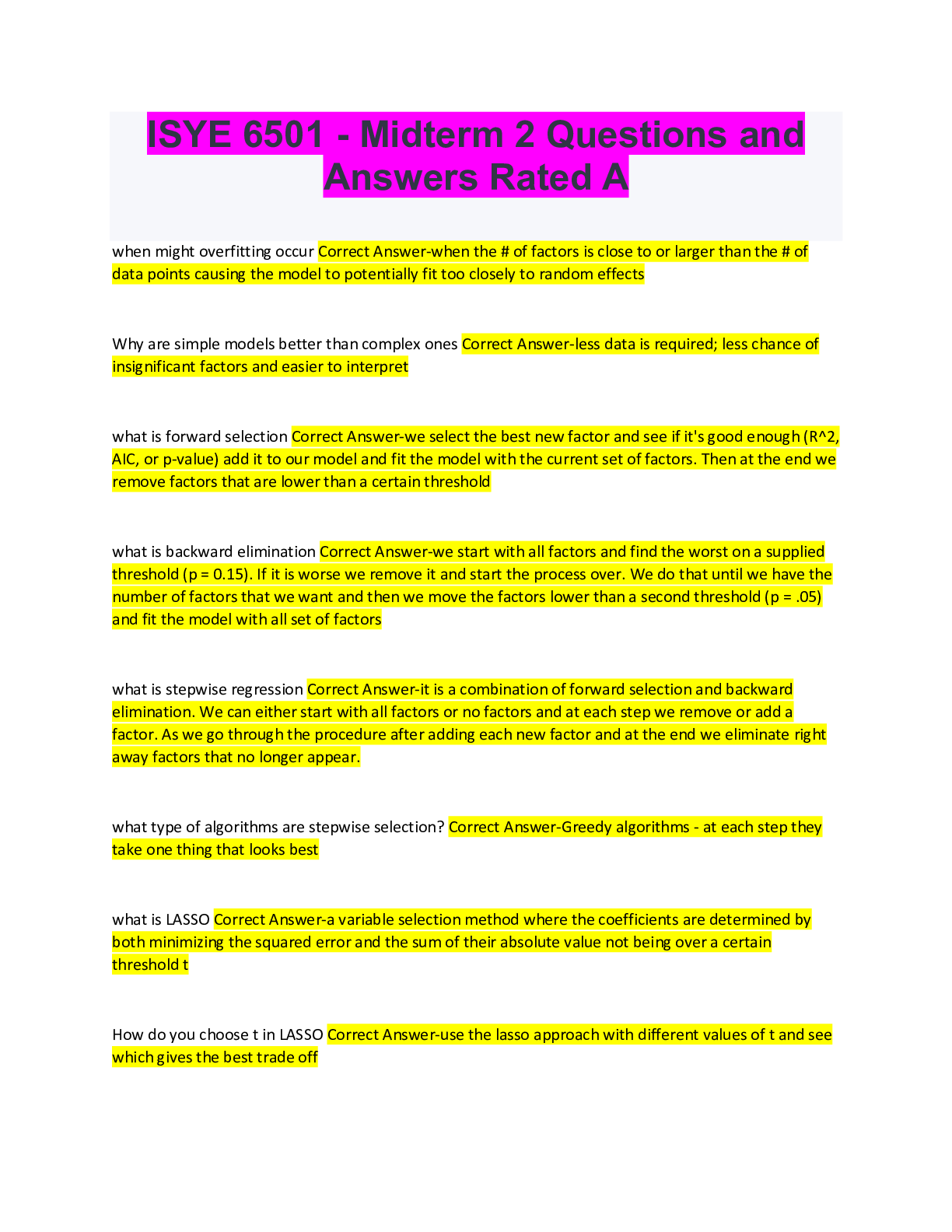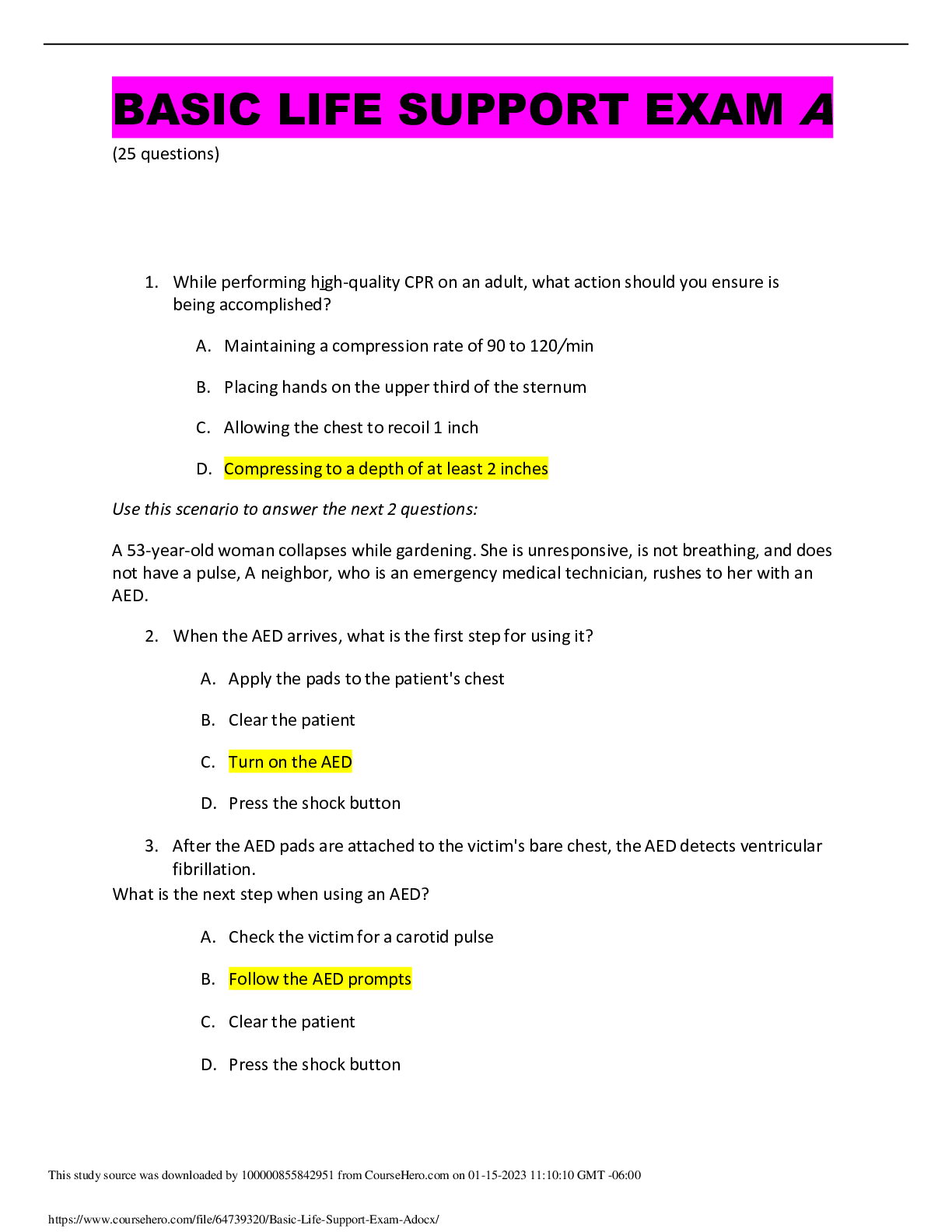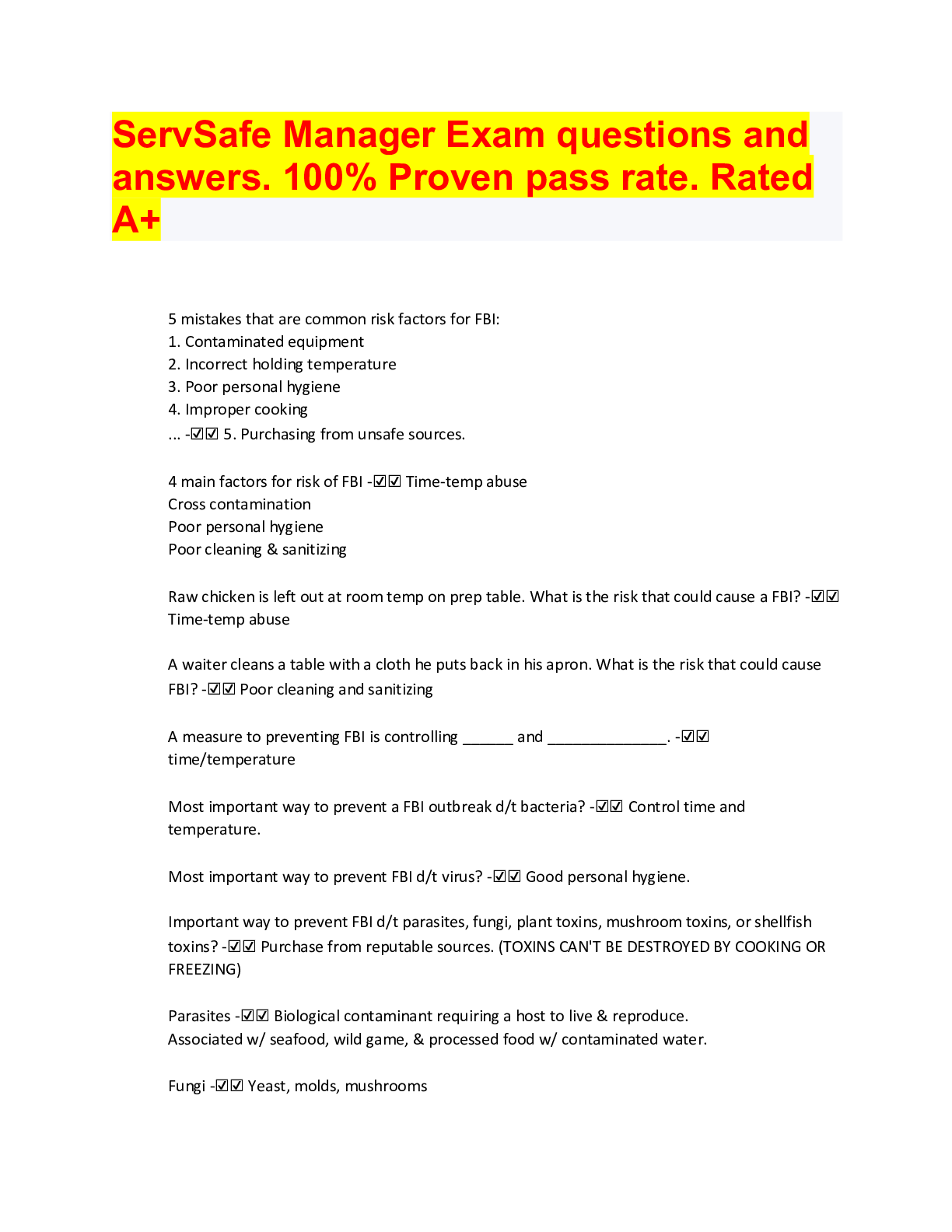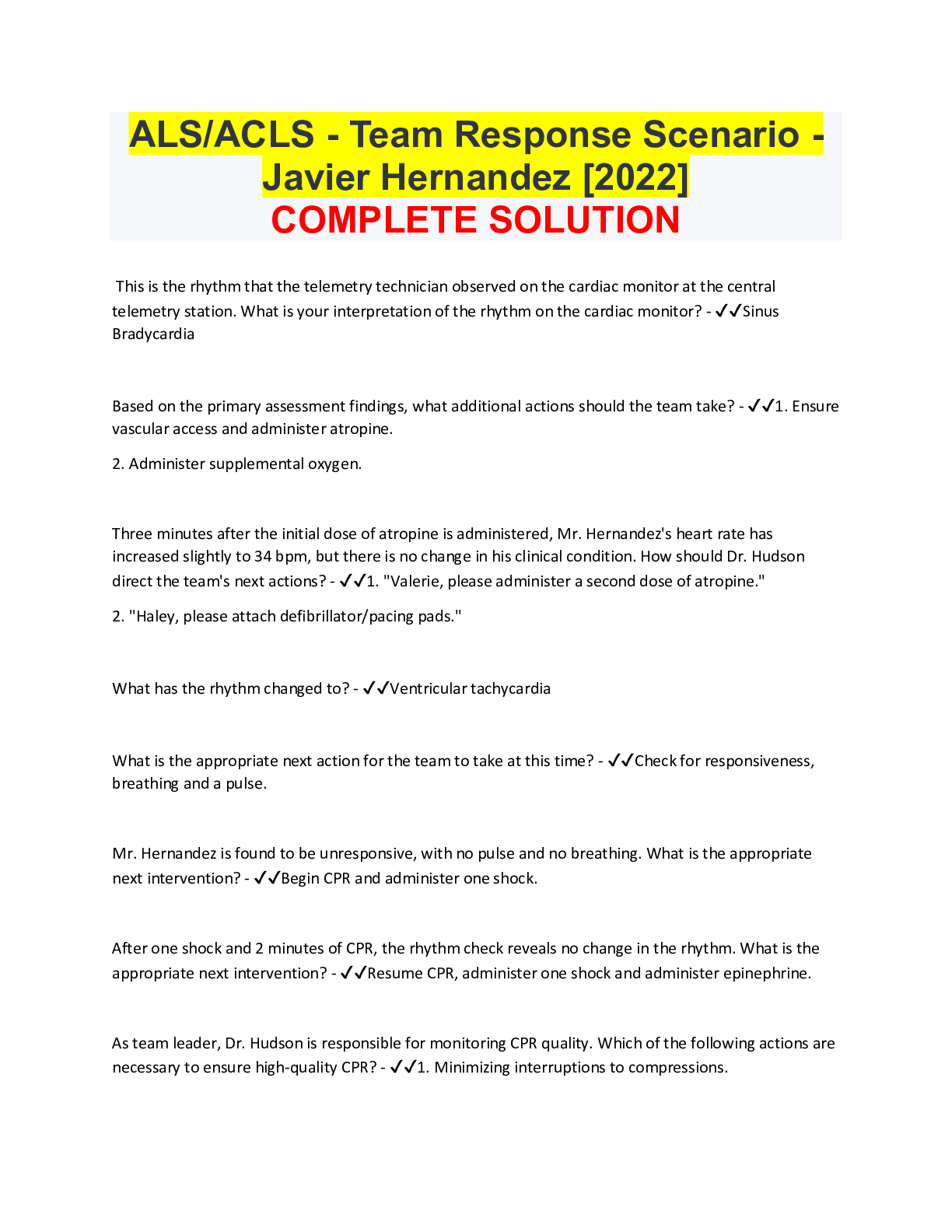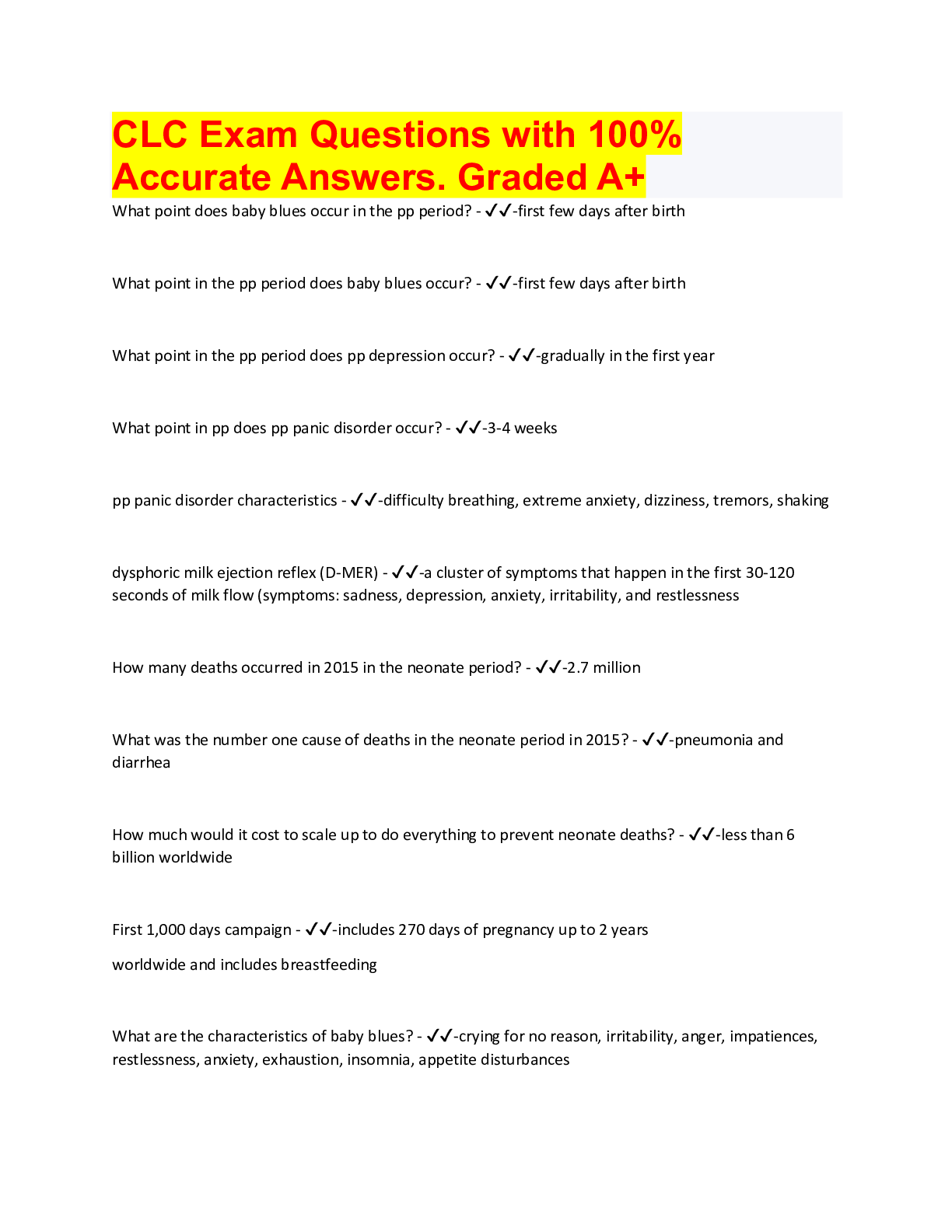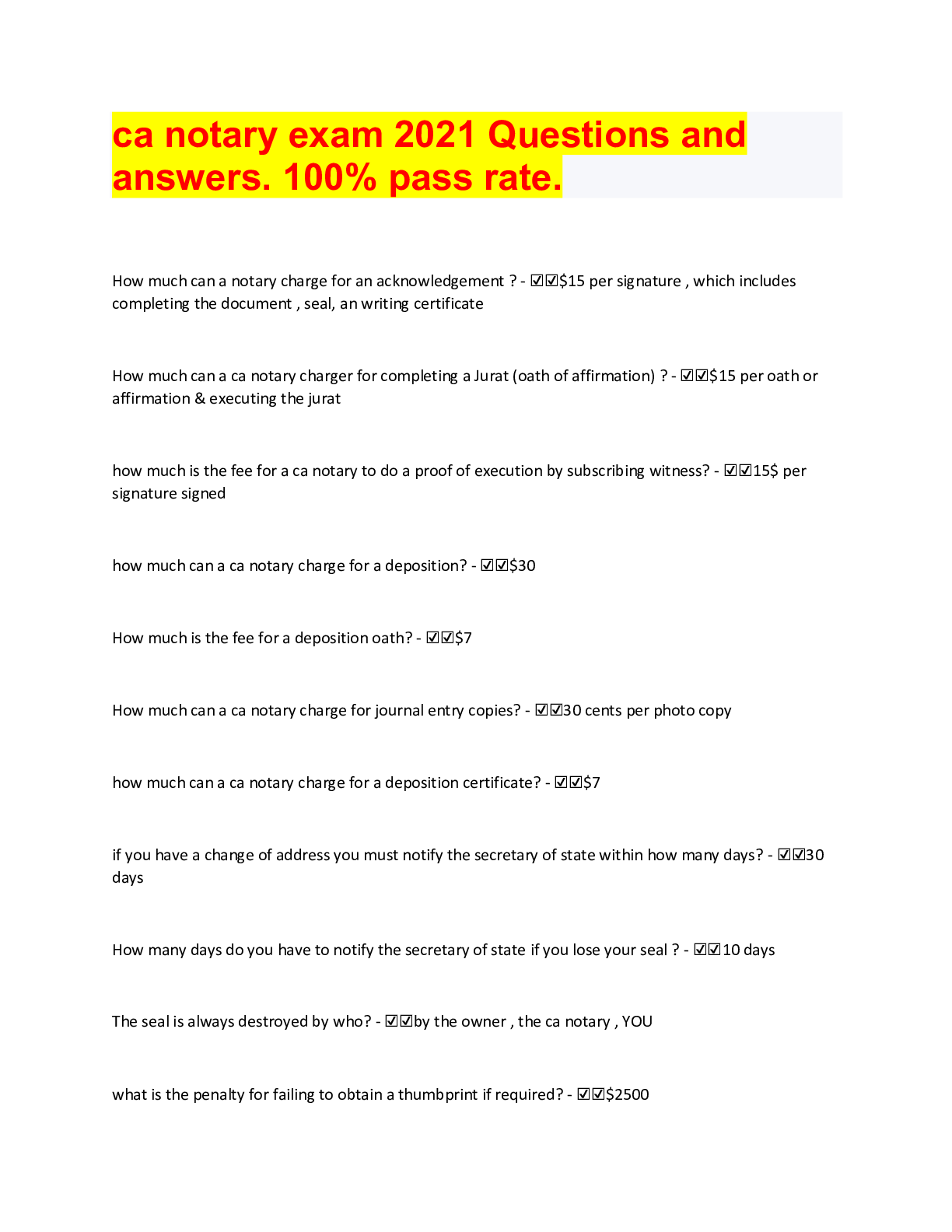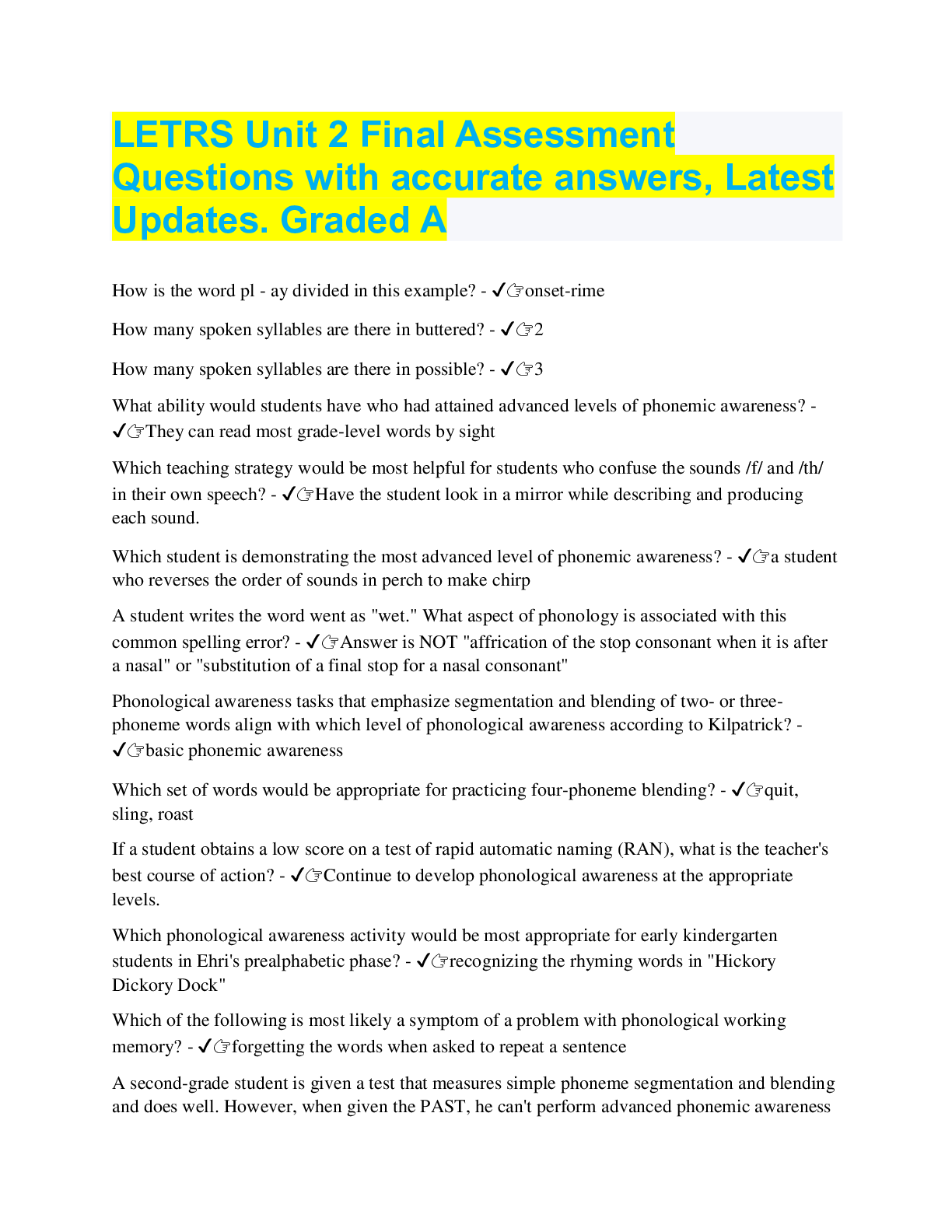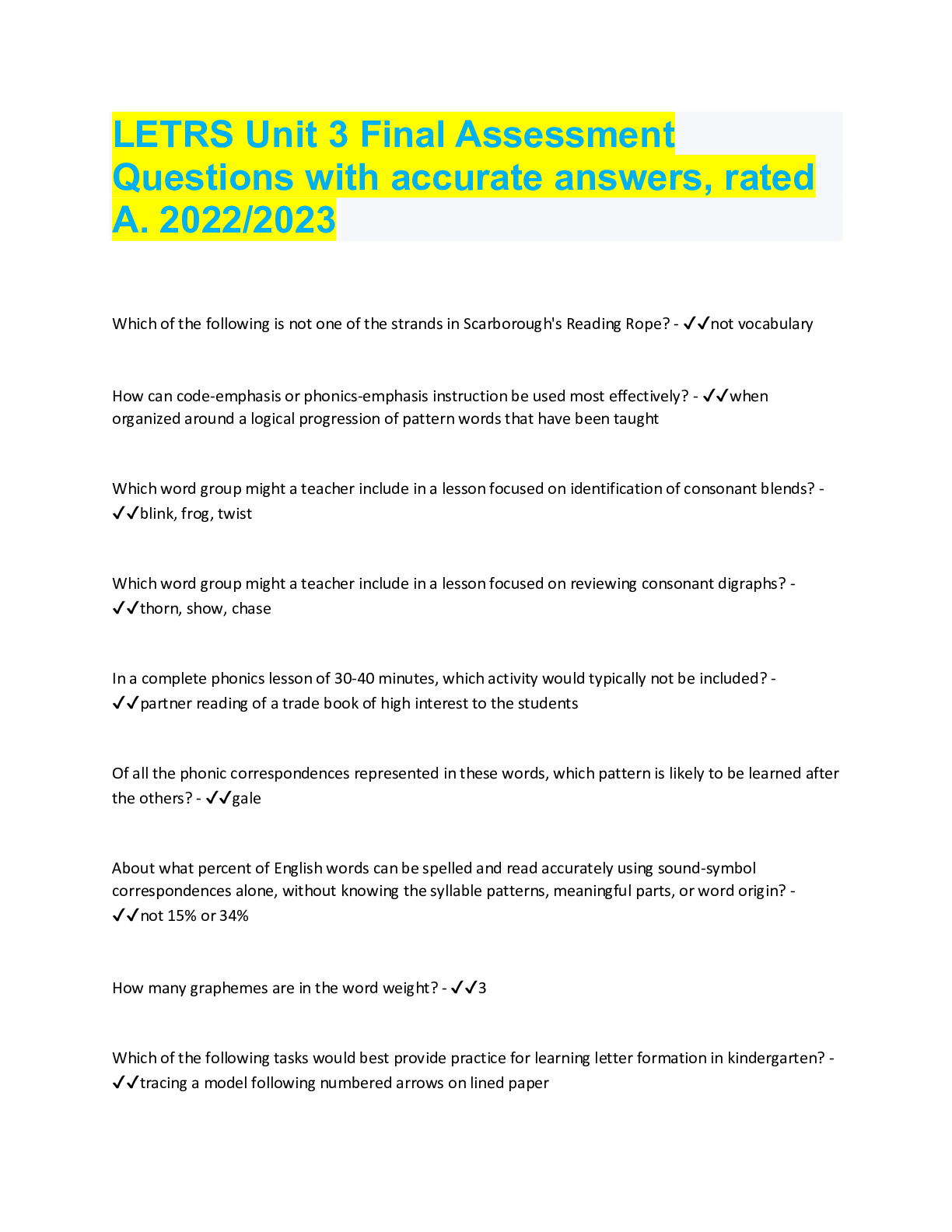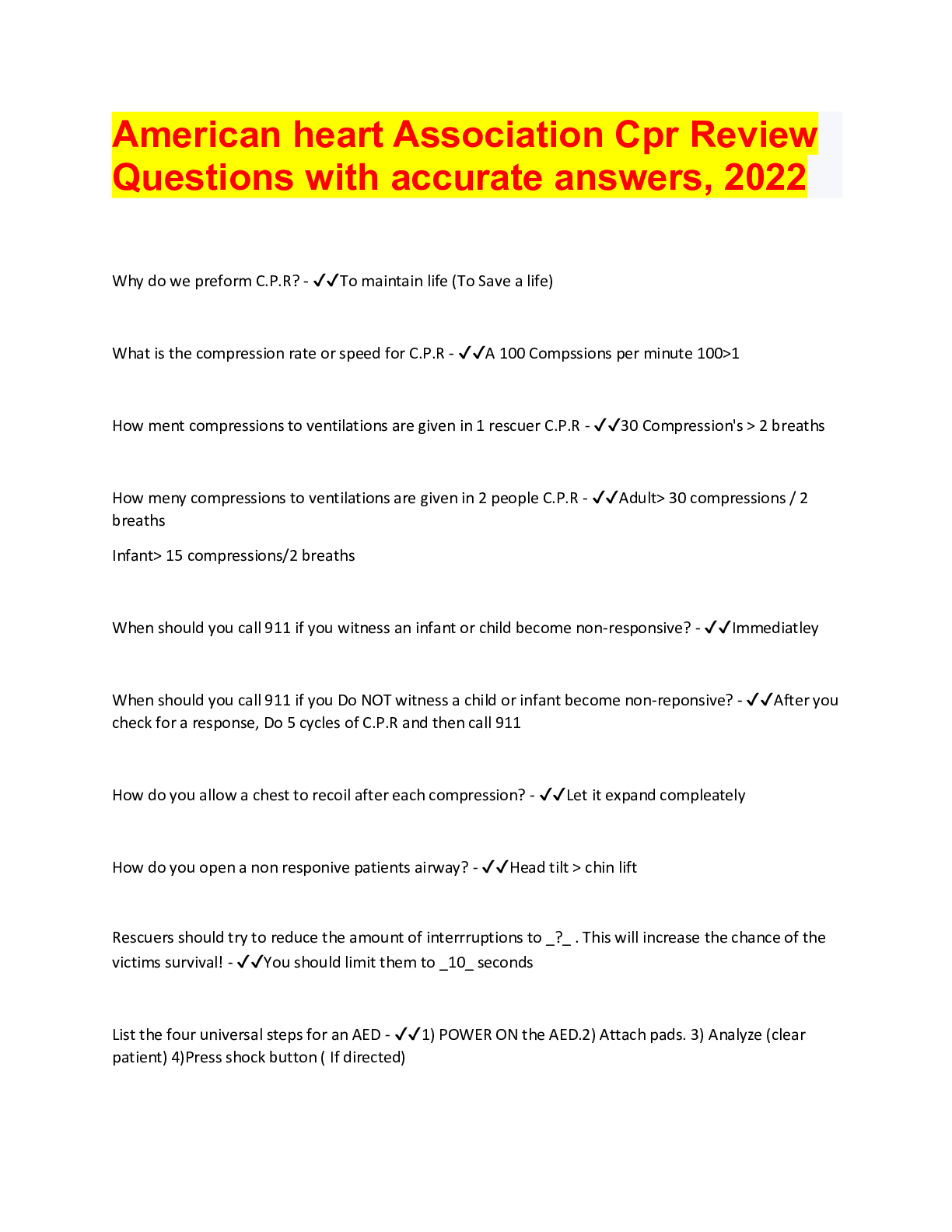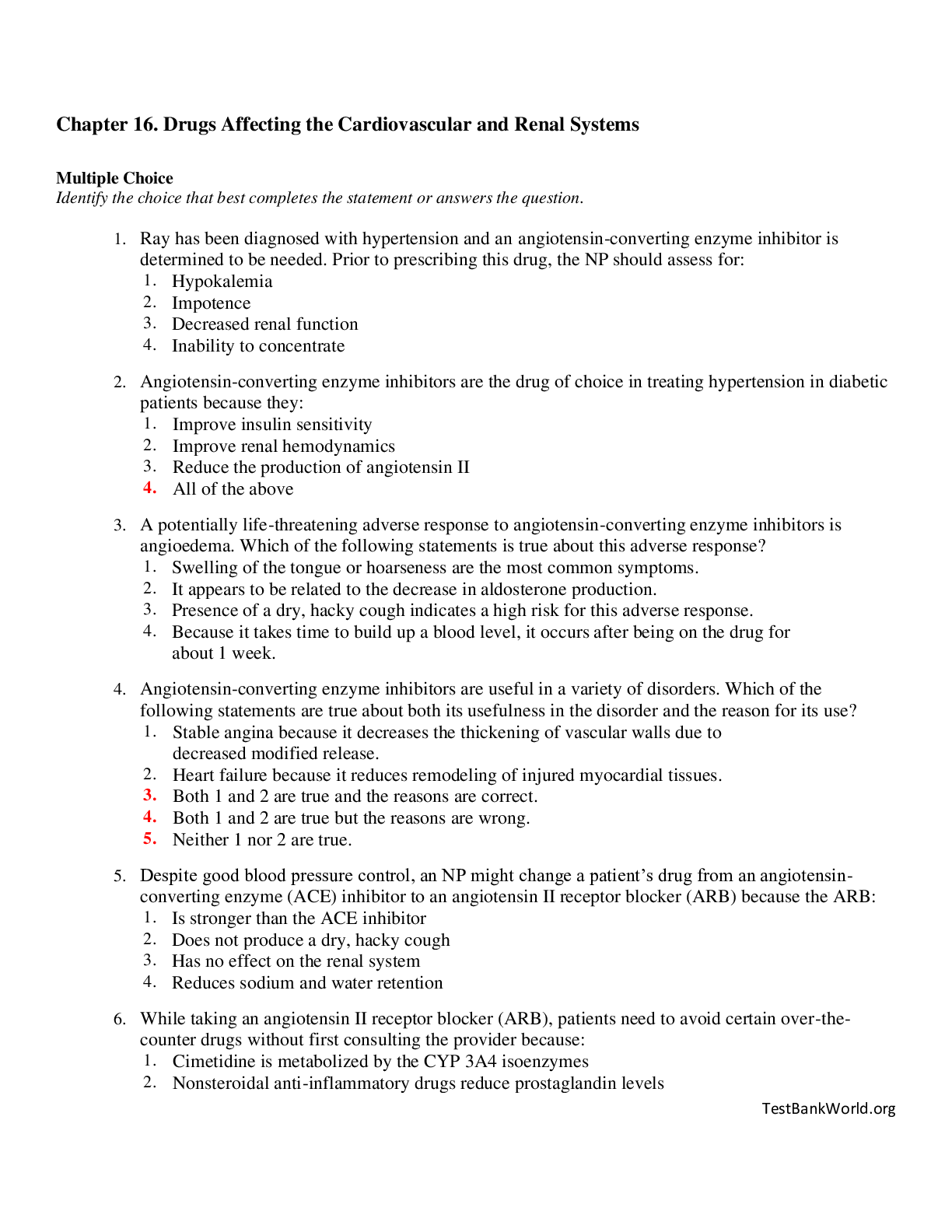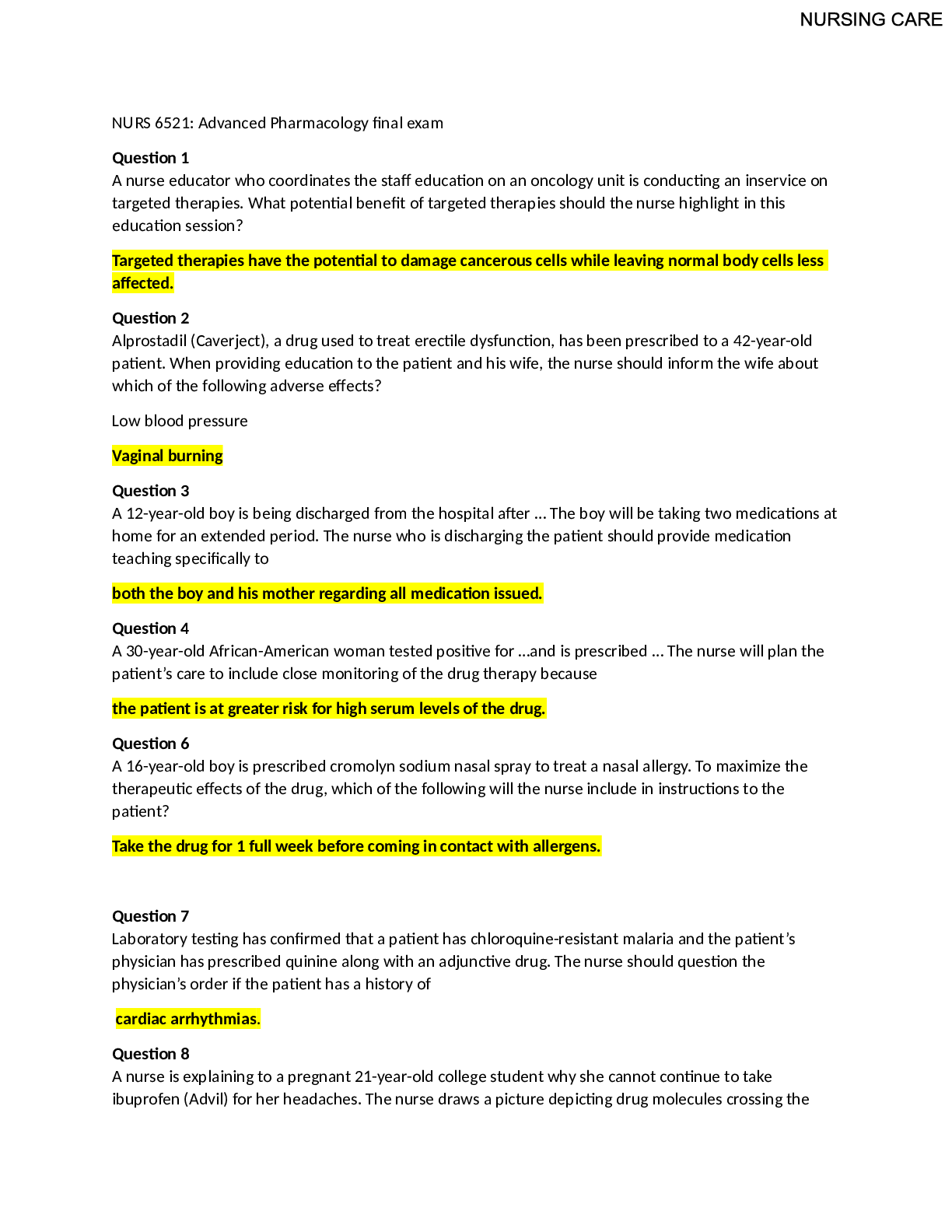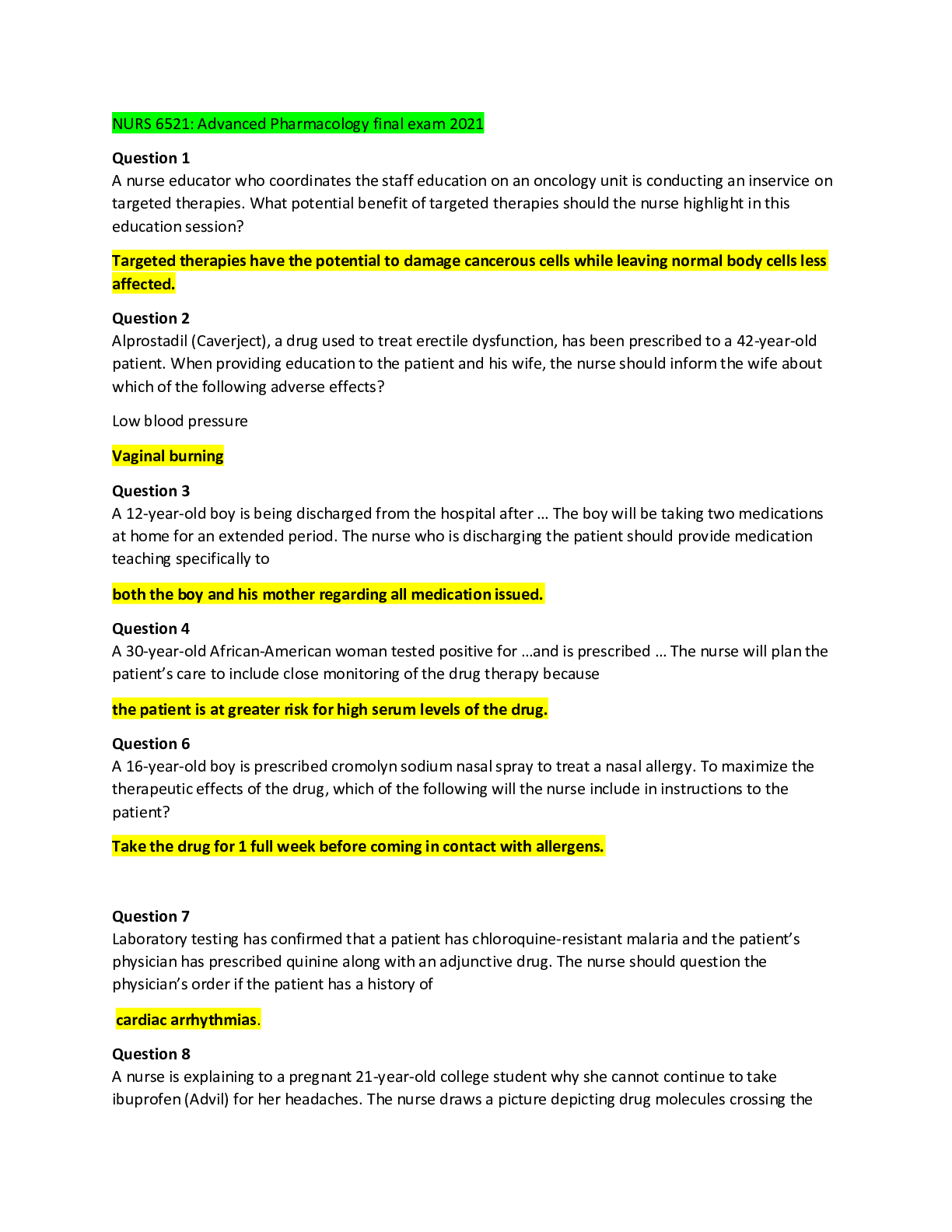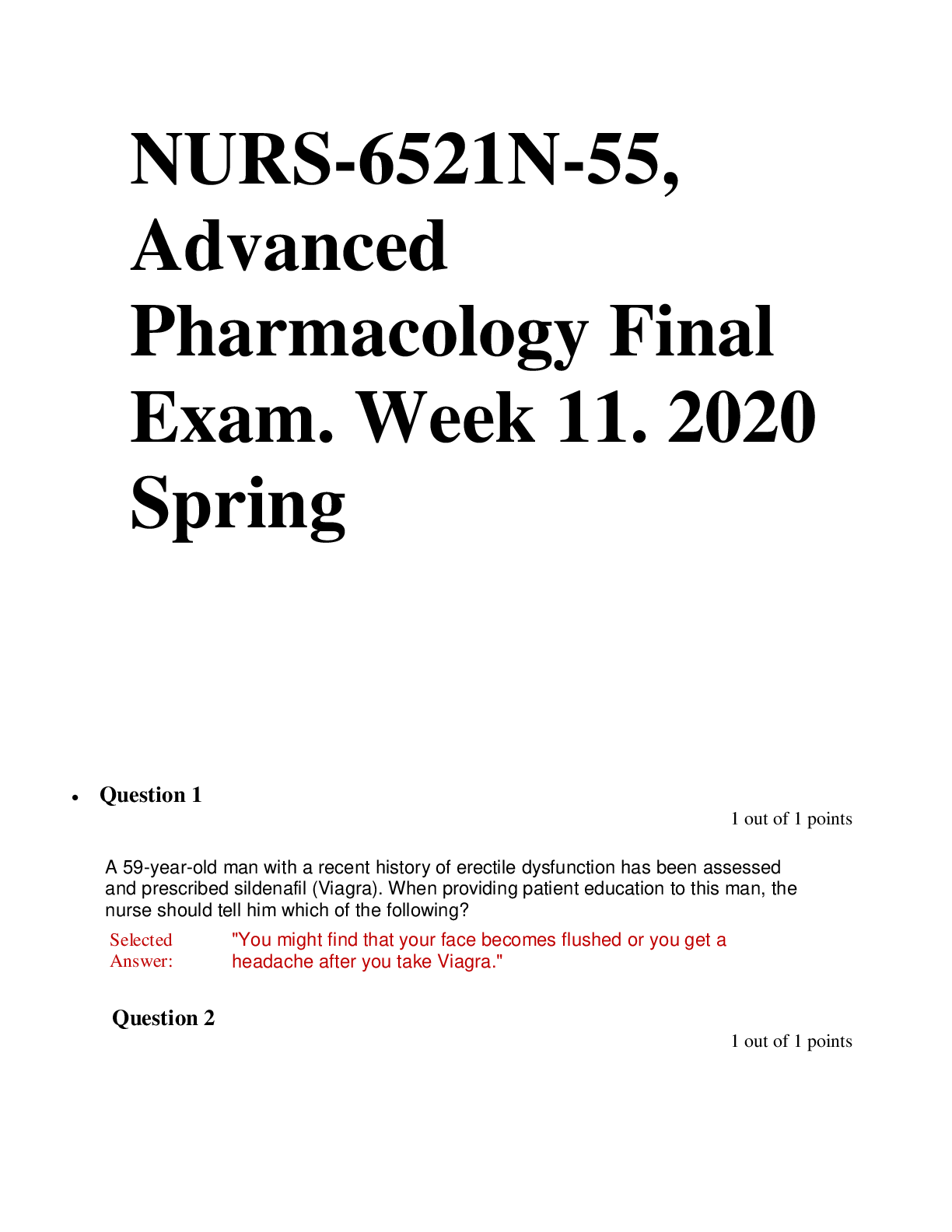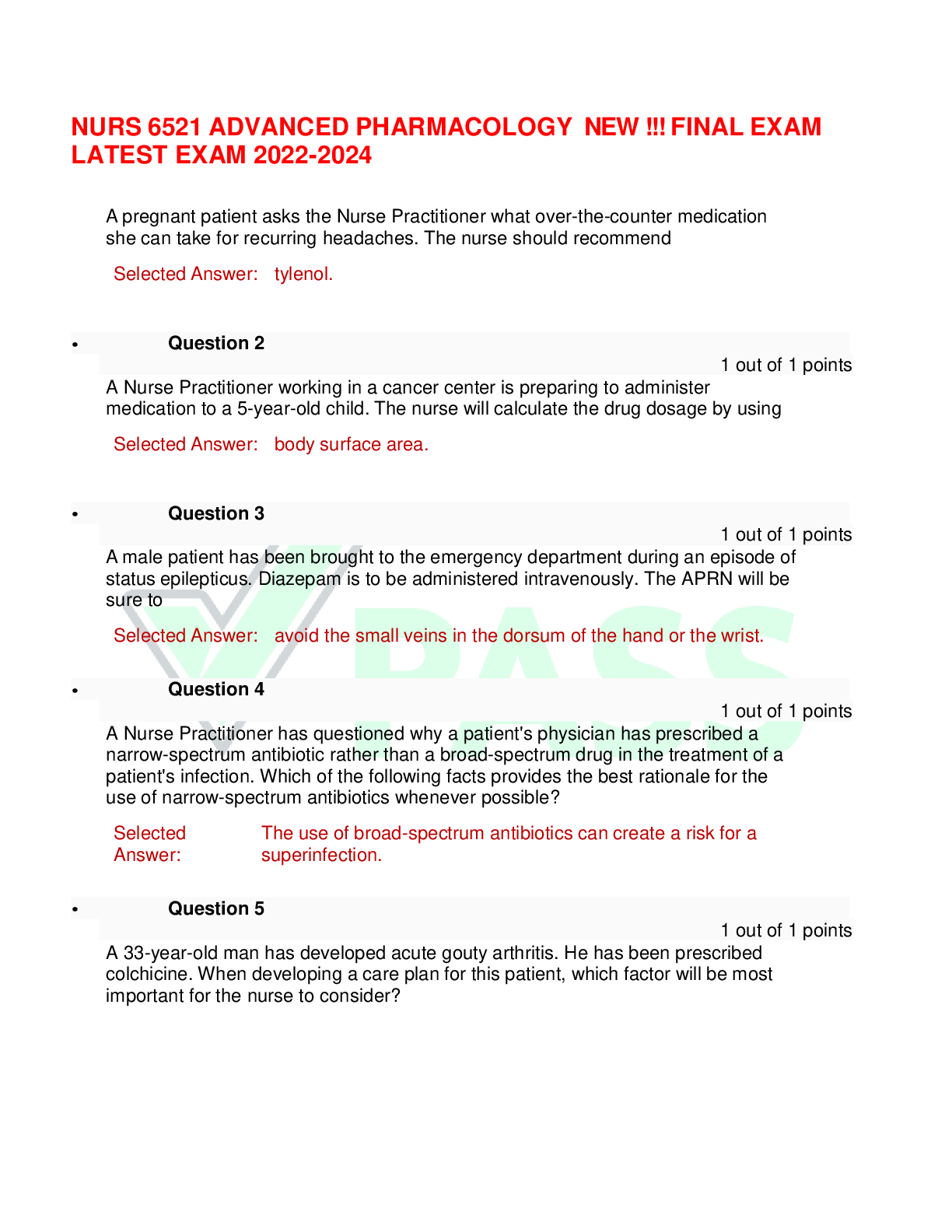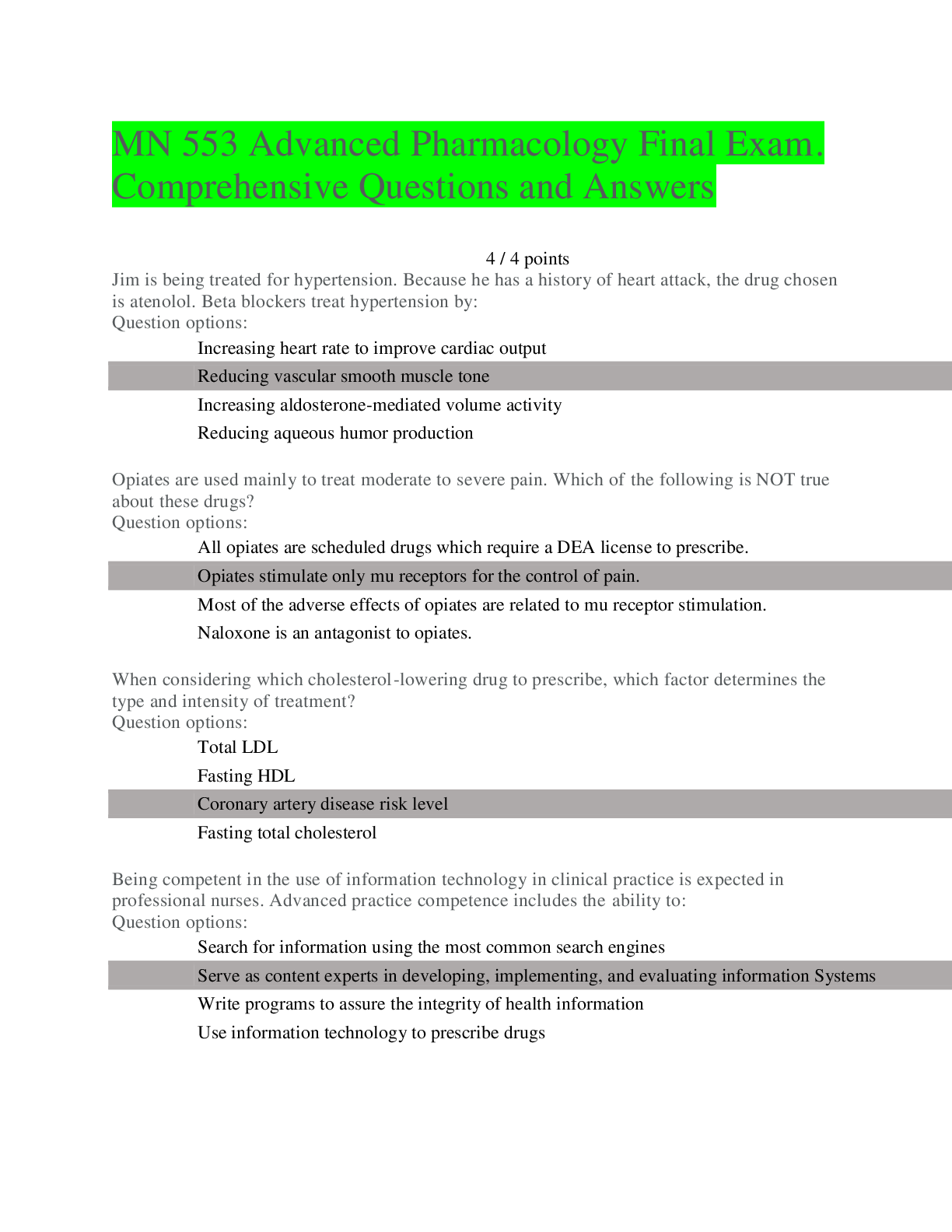*NURSING > QUESTIONS & ANSWERS > Advanced Pharmacology 6521 Mid Term Advanced Pharmacology FINAL EXAM Study Review ( Latest, 2020 / 2 (All)
Advanced Pharmacology 6521 Mid Term Advanced Pharmacology FINAL EXAM Study Review ( Latest, 2020 / 2021)
Document Content and Description Below
Advanced Pharmacology 6521 Mid Term Advanced Pharmacology FINAL EXAM Study Review ( Latest, 2020 / 2021) Anti-diarrheals - ✔✔Stops further occurrence of diarrhea. Notable medicines are Loperam... ide "Immodium", Diphenoxylate Hcl with Atropine "Lomotil", Bismuth subsalicylate "Pepto bismul" Pepto s/e: black stools and tongue Laxatives - ✔✔Used to ease or stimulate defecation Soften the stool Increase stool volume Hasten fecal passage through the intestine Facilitate evacuation from the rectum *Misuse comes from misconceptions of what constitutes normal bowel function Fiber Laxatives - ✔✔absorbs water, softening feces and increasing their mass. Can be digested by colonic bacteria, whose subsequent growth increases fecal mass. ex. Bran, veggies and fruits. Meds: mehylcellulose, psyllium, polycarbophil Surfactant Laxatives - ✔✔Meds: Docusate sodium (Colace) Docusate calcium (Surfak) temporary treatment of constipation * avoid if narrowing of intestines Give with a full glass of water or juice Stimulant Laxatives - ✔✔bisacodyl: (tablets: give at night to have BM in am , no crushing or chewing, no milk or antacids;Suppositories: BM within 15-60 min, may cause proctitis); senna: BM 6-12 hours after. May cause pink or brown urine. castor oil: acts on small intestine 2-6 hour BM. Limit to only when prep for radiology procedures. Chill and mix in juice. * easily abused, Give with a full glass of water. Osmotic Laxatives - ✔✔Salts draw water into the intestine causing fecal mass to soften and swell stimulating peristalsis. Low dose 6-12 hours, high dose 2-6 hours. magnesium hydroxide, magnesium citrate, polyethylene glycol, lactulose (can be used to lower blood ammonia in liver disease) * Increase fluid intake. Not good for kidney disease. Sodium phosphate exacerbates cardiac disease. Miscellaneous Laxatives - ✔✔Lubiprostone, mineral oil, glycerin suppository, polyethylene glycol- electrolyte solution, Sodium picosulfate / magnesium oxide/anhydrous citric acid antiemetic - ✔✔a medication that is administered to prevent or relieve nausea and vomiting Ondesetron Class: 5HT3 receptor antagonist - ✔✔Zofran Indication: Chemotherapy N/V, postoperative N/V, radiation induced N/V Oral or Parental * Prolonges QT interval (leading to torsades de pointes) Glucocorticoids used as antiemetic - ✔✔Not approved by FDA. Solumedrol and dexamethasone. Given IV. Metoclopramide (Reglan) - ✔✔controls post-op NV suppresses emesis and increases upper GI mobility Cannabinoids - ✔✔Dronabinol (marinol) and Nabilone (cesamet). Suppresses CINV. Alosetron (Lotronex) - ✔✔Used for IBS-D in women that has lasted > 6 months Blocks 5-HT3 receptors resulting in firm stool and decrease in urgency and frequency of defecation Can cause constipation PPIs - ✔✔Proton-pump inhibitors - pronounced and long-lasting reduction of gastric acid production - destroyed by stomach acid (take on empty stomach) - work really well - "attack from the back" - used as a controller Ex. Omeprazole (Prilosec) Mesalamine - ✔✔treats ulcerative colitis Ranitidine (Zantac) - ✔✔H2 receptor antagonist. Potent inhiitor of gastric acid secretion Indications: GERD, ulcers, H. pylori, reflux, indigestion ADR: Pain, constipation, diarrhea, headache. Can cause jaundice Ulcers treatment - ✔✔likely caused by H. pylori. Treat with antibiotic and pepto bismol, proton pump inhibitors (prilosec, prevacid, aciphex, nexium, protonix), H-2 blockers (zantac, pepcid, tagamet, nazatidine), antacids, and cytoprotective agens (carafate, cytotec) irritable bowel syndrome (IBS) - ✔✔periodic disturbances of bowel function, such as diarrhea and/or constipation, usually associated with abdominal pain. Intermittent diarrhea and constipation with pain. Treat and prevent symptoms: Antispasmodics, bulk forming agents, antidiarreheals and tricyclic antidepressants. Alosetron (Lotronex) - ✔✔Used for IBS-D in women that has lasted > 6 months Blocks 5-HT3 receptors resulting in firm stool and decrease in urgency and frequency of defecation Can cause constipation / bowel obstruction and perforation Eluxadoline (Viberzi) - ✔✔Mu/Kappa opioid receptor agonist and delta opioid receptor antagonist in the gut used to treat IBS prone diarrhea Lubiprostone (Amitiza) - ✔✔Used for IBS-C and chronic constipation Increases fluid secretion in intestine, promotes motility Can cause diarrhea, nausea (take w/ food) Crohn's disease - ✔✔a chronic autoimmune disorder that can occur anywhere in the digestive tract; however, it is most often found in the ileum and in the colon Sulfasalazine (Azulfidine) - ✔✔5-aminosalicylate,, DMARD Decrease inflammation by inhibiting prostaglandin synthesis Used for IBD (Crohn's, UC), RA Can cause agranulocytosis, hemolytic and macrocytic anemia,, hepatic dusfunction, bone marrow suppression Mesalamine - ✔✔Treats ulcerative colitis and mild to moderate IBD Olsalazine (Dipentum) - ✔✔IBD Management - Salicylate Derivative Balsalazide (Colazal) - ✔✔IBD Management - Salicylate Derivative Cyclosporine - ✔✔Immunosuppressant Methyltrexate - ✔✔Immunossuppressant. Can promote short-term remission and reduce need for glucocorticoids in patients with Crohn's disease Immunomodulating drugs - ✔✔Medications that therapeutically alter a patient's immune response to malignant tumor cells Drugs that modify the body's own immune response so that it can destroy various viruses and cancerous cells Second line agents in inflammatory bowel. Infliximab (Remicade) - ✔✔Monoclonal Antibody that binds to tumor necrosis factor (TNF) & neutralizes its activity by preventing it from binding to the cell membrane in the blood. It is an immunosuppressant & is indicated for treatment of active Crohn disease & ulcerative colitis & is generally reserved for moderate - severe cases. It is given in IV form & the vials need to be refrigerated. Metronidazole (Flagyl) - ✔✔1. Used to treat anaerobic infections 2. DO NOT USED ALCOHOL (antabuse effect will be nauseous) treats mild to moderate crohns diease. Ciprofloxacin (Cipro) - ✔✔Antibiotic, treats crohns, used with infliximab. Ulcer treatment - ✔✔usually includes medication to decrease stomach acid production like antacids; if bacteria is cause, antibiotics may be needed; avoid smoking and drinking [Show More]
Last updated: 1 year ago
Preview 1 out of 20 pages
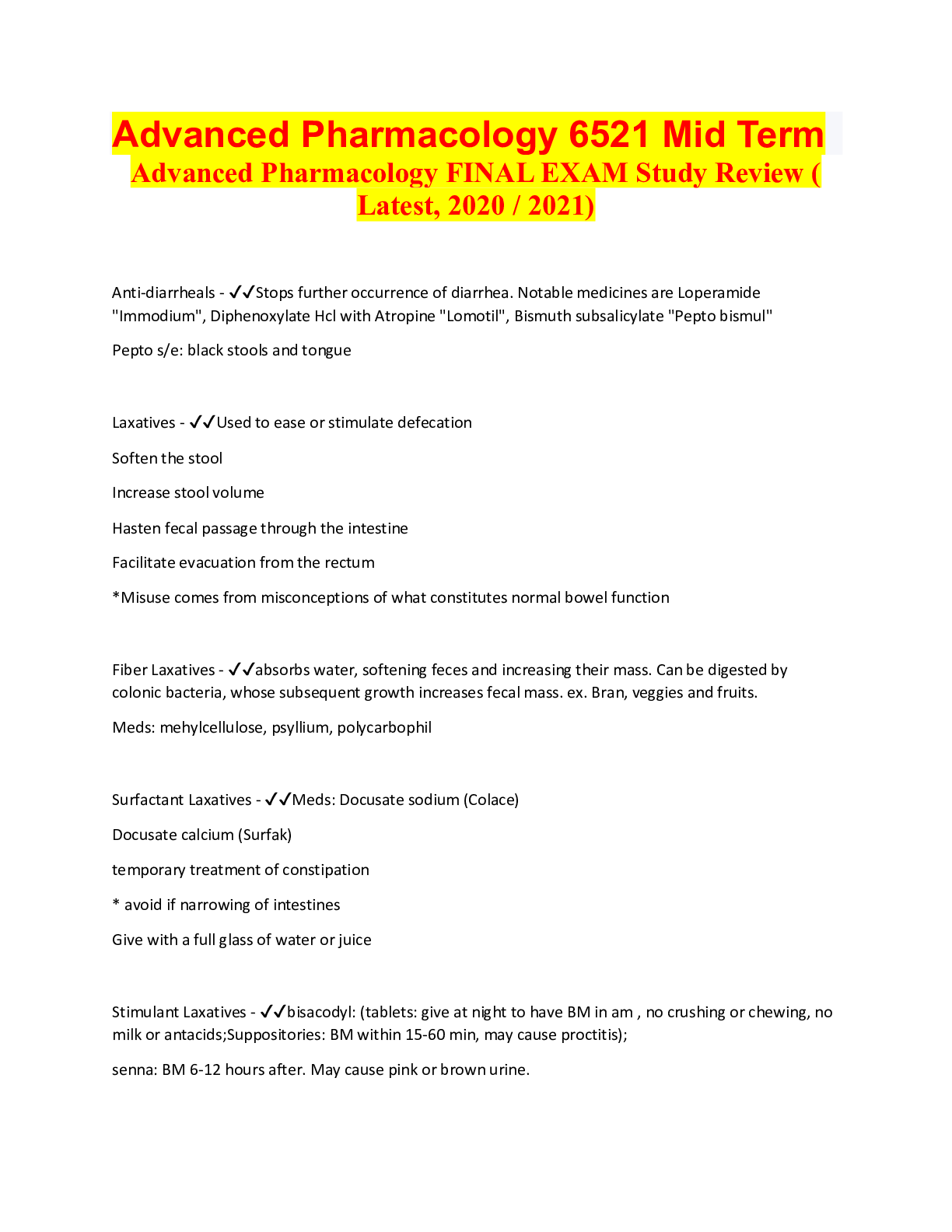
Buy this document to get the full access instantly
Instant Download Access after purchase
Add to cartInstant download
We Accept:

Also available in bundle (1)
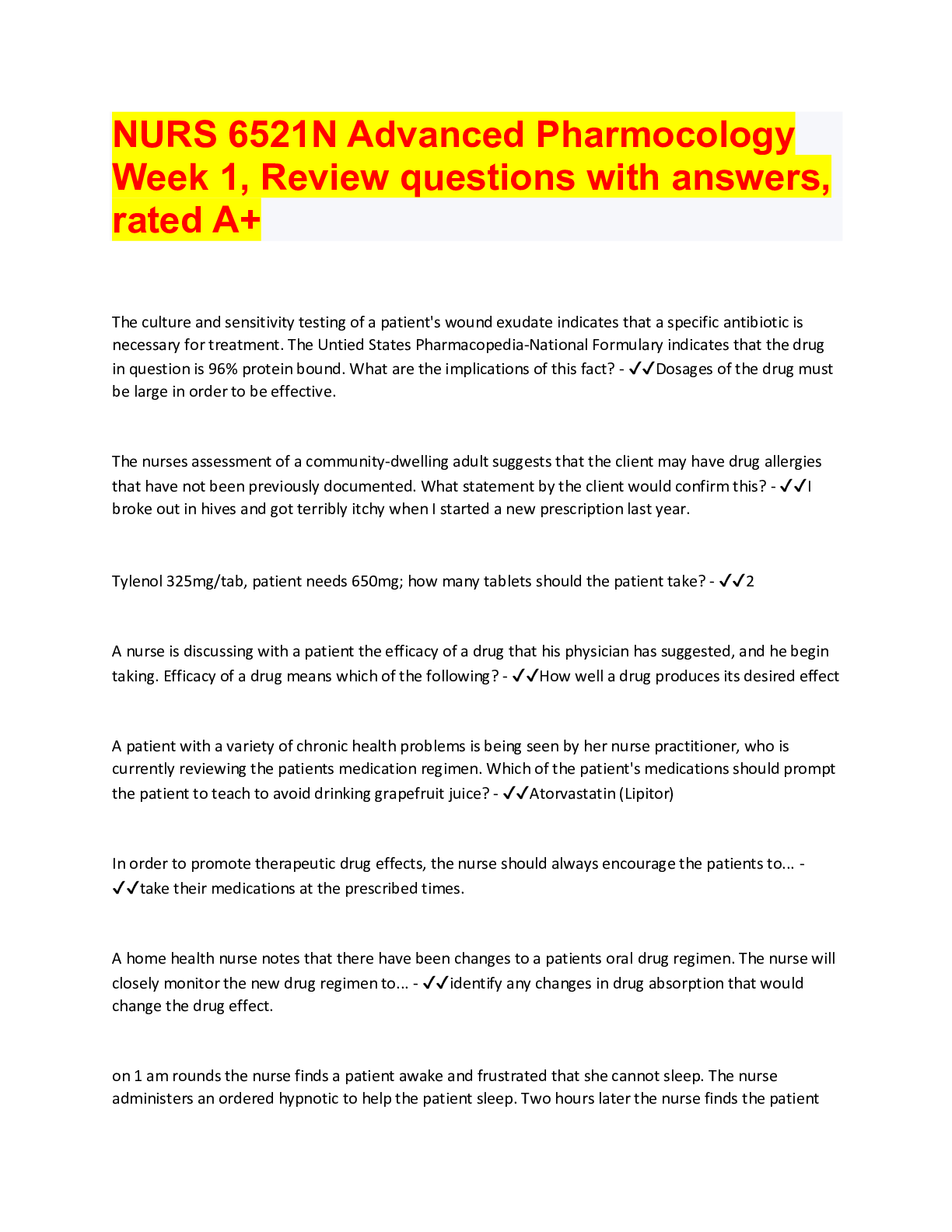
NUR 6521 Bundle
Consists of questions and answers, rated A+
By bundleHub Solution guider 1 year ago
$30
6
Reviews( 0 )
$13.00
Document information
Connected school, study & course
About the document
Uploaded On
Aug 19, 2022
Number of pages
20
Written in
Additional information
This document has been written for:
Uploaded
Aug 19, 2022
Downloads
0
Views
71


